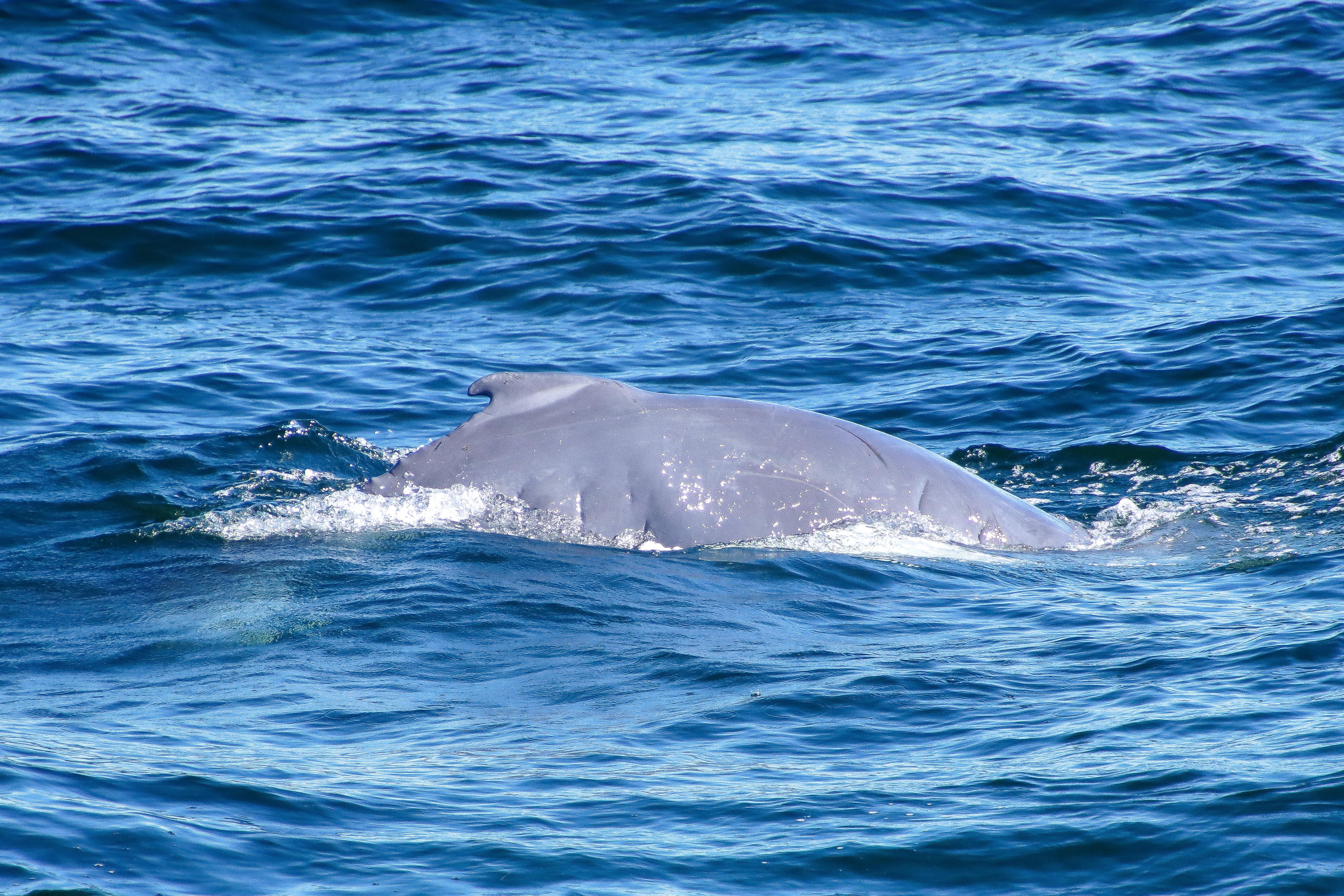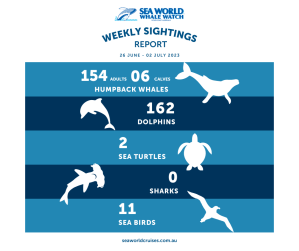Over the past week, numerous sightings of newborn calves have been reported along the Gold Coast coastline. Guests aboard Sea World Cruises have been treated to the remarkable interactions between mothers and their clumsy offspring, creating unforgettable experiences on the water.
Newborn calves are adorable bundles of blubber, who are light grey in colour with floppy dorsal fins. It takes some time for the babies to learn the ropes of being a whale. They are often seen awkwardly trying to jump out of the water or catching a free ride on their mother’s head.
Onboard researcher Laura Torre-Williams is currently studying the humpback whale calves born in the Gold Coast region. She highlights that “the warm and shallow waters of the Gold Coast Bay provide a sanctuary for humpback whales and their young’. This area has become a favoured spot for mothers to give birth and nurture their offspring, contrary to previous literature that suggested the Great Barrier Reef as the primary birthing location.
Torre-Williams’ long-term study aims to unravel the mystery behind the shift in birthing patterns and understand why more humpback whale calves are being born further south. The research holds immense importance in supporting the conservation efforts of the species in the Gold Coast Bay region.
With an increasing number of whales travelling through the Gold Coast, whale experts would like to offer a friendly reminder of the best practice rules of watching marine mammals in Queensland. It is important for all water users to familiarise themselves with these regulations for a respectful experience for both the whales and those enjoying time out at sea.
These regulations encompass strict rules on approach distances, vessel speeds, and the maximum number of vessels allowed in close proximity to the whales. By adhering to these guidelines and minimising disturbances, water users can contribute to a safe and enriching experience for both humans and whales.
As more newborn calves are seen in the region, it is important that vessels remain a minimum 300m distance away from mums and bubs. Disturbances from jet skis and boats can scare and disrupt natural behaviours such as feeding, resting, and nursing their young.
In addition to its positive impact on whale conservation, adhering to these regulations also prioritises the safety of water users. Considering that adult humpback whales can reach an astonishing weight of 45 tonnes and travel at speeds of up to 25 km/h, it’s important to maintain a respectful distance. By doing so, we can ensure the well-being of both humans and these magnificent creatures, creating a harmonious coexistence in our shared waters.

Caption: Newborn humpback whales are grey in colour with a floppy dorsal fin. Supplied: Sea World Cruises

Supplied: Sea World Cruises
Sea World Cruises is looking forward to another week of great whale watching on the Gold Coast, with tours departing seven days a week.
For ticket information, visit seaworldcruises.com.au.









